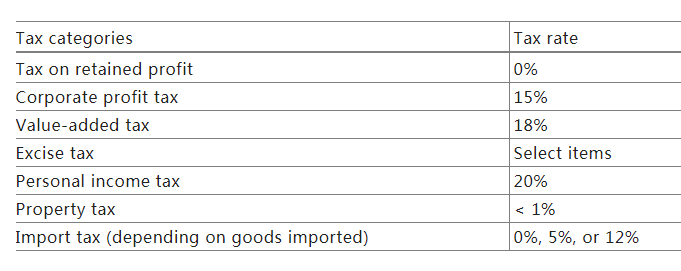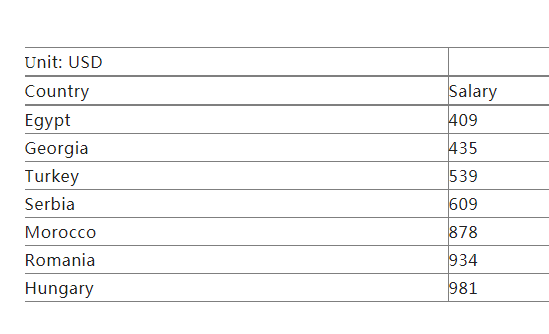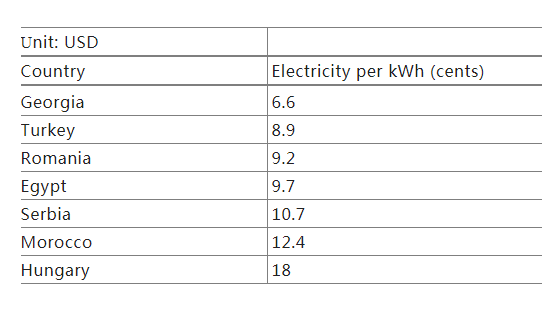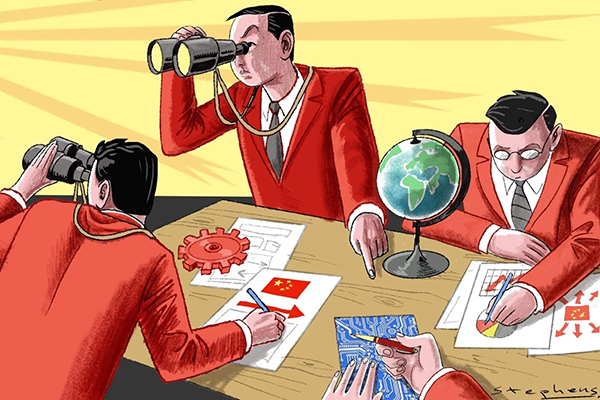Georgian Ambassador: Bilateral Relations Between Georgia & China
April 03 , 2022
“Georgia and China enjoy close high-level exchanges and solid political mutual trust, and the Georgian side actively supports the joint construction of the Belt and Road Initiative. Chinese enterprises are welcome to expand investment in Georgia. Georgia stands ready, together with the Chinese side, to expand bilateral trade and intensify cooperation in fields such as people-to-people and cultural engagement, so as to realize mutual benefit and win-win results.”
——H.E. Dr. Archil Kalandia, Ambassador Extraordinary and Plenipotentiary of Georgia to the People’s Republic of China
Georgia and China, countries with ancient civilizations, rich histories and unique cultures, have developed wide ranging, mutually beneficial and forward-oriented relations since the establishment of diplomatic relations in 1992.
From the outset, I would like to underscore that bilateral relations are developing dynamically. China and Georgia are two nations linked by multiple historical, cultural and social ties. Through this experience, we have been able to develop a mutual respect and admiration.
At the political level, the Governments of Georgia and the People’s Republic of China put every effort in deepening bilateral partnership that is well demonstrated in intensification of high-level contacts and reciprocal visits that positively influence the rising trend of B2B and people-to-people cooperation and translate into various joint projects that benefit the peoples of our states.
1. Political Contacts and High-level Visits
Despite the distance and relative disparity in size and population, Georgia and China have managed to establish sound cooperation in international affairs and enjoy exemplary relations, based on respect and equality. It is of high importance for Georgia that China, a member of the United Nations Security Council and an important actor in the Global affairs, unequivocally upholds the basic principles of International Law and the UN Charter and strongly supports the sovereignty and territorial integrity of Georgia. For its part, Georgia fully supports and goes in line with the One-China policy.
As mentioned above, high-level visits have been frequent. A Chinese delegation led by Mr. Zhang Gaoli, Vice Premier of the State Council of the People’s Republic of China, paid an official visit to Georgia in May 2016. Within the framework of the visit, the delegations of the two countries signed the Agreement on Economic and Technical Cooperation between the two Governments and a Memorandum of Understanding on Cooperation between the Ministry of Economy and Sustainable Development of Georgia and the Ministry of Commerce of China. This was the first official high-level visit of China delegation to Georgia in recent years.
In September 2015, Georgian Prime Minister Mr. Irakli Garibashvili led a delegation to China. During the visit, the Prime Minister conducted several high-level bilateral meetings, including a meeting with the President of the Asian Infrastructure Investment Bank (AIIB) and participated in the World Economic Forum in Dalian, where he delivered a speech on the “Modern Silk Road”.
In November 2017, Mr. Qian Keming, Vice Minister of Commerce of the People’s Republic of China, attended the “Tbilisi Belt and Road Forum (Silk Road Forum)” and held a bilateral meeting with Mr. Dimitry Kumsishvili, First Vice Prime Minister and Minister of Economy and Sustainable Development of Georgia. The fact that the Forum was held in Georgia underlines the importance of Georgia within the “Belt and Road” Initiative. Prime Minister of Georgia Giorgi Kvirikashvili hosted the participants of Tbilisi Silk Road Forum at the official reception ceremony.
In August 2018, a Georgian delegation led by the Vice Prime Minister of Georgia and Minister of Regional Development and Infrastructure, Ms. Maya Tskitishvili, held a working visit in the city of Ürümqi of the People’s Republic of China. During the visit, the Vice Prime Minister of Georgia conducted bilateral meetings with Mr. Hu Chunhua, Vice Premier of the State Council of the People’s Republic of China, and Mr. Shohrat Zakir, the Chairman of the Xinjiang Uygur Autonomous Region. One of the main subjects of meetings was the potential to use railways as well as other traffic networks in order to ensure transportation of Chinese cargo to Europe passing through Georgia and the more active use of the Trans-Caspian International Transport Route (so-called Middle Corridor). The parties have planned special emphasis on current as well as scheduled large-scale infrastructural projects to be implemented in Georgia.
In November 2018, more than 50 Georgian companies were showcased at the China International Import Expo (CIIE) in Shanghai. The Georgian Prime Minister Mr. Mamuka Bakhtadze attended the opening ceremony, hosted by the Chinese President Mr. Xi Jinping. The Georgian Prime Minister, together with the President of the People’s Republic of China and the heads of delegations from the exposition’s participating countries, visited the exhibition space. It was an excellent opportunity to showcase the export potential of Georgia, as well as explore new avenues of cooperation and develop mutual benefit and win–win economic and trade partnership with countries participating in the “Belt and Road” Initiative.
In April 2019, the Georgian Vice Premier, Minister of Infrastructure and Regional Development, Ms. Maya Tskitishvili, visited China and attended the second Belt and Road Forum for International Cooperation held on April 25–27 in Beijing. During her speech, she said that the “Belt and Road” Initiative is important for Georgia and the country is actively involved in its development. She noted that Georgia was among the first countries who signed the memorandum for developing the “One Belt, One Road” Initiative in March 2015. Tskitishvili talked about Georgia’s strategic importance in the region, about its developed transport and customs infrastructure, business-friendly politics and strong external trade relations, as well as the country’s free industrial zones. Vice Premier Ms. Maia Tskitishvili and the Minister of Transport of the People’s Republic of China, Mr. Li Xiaopeng, in Beijing signed an intergovernmental agreement on cooperation on international land transportation of passengers and cargo. The agreement was a huge step forward in the two countries’ relations that has boosted competitiveness of prices and provided additional benefits for transportation.
On July 1, 2019, H.E. Mr. Mamuka Bakhtadze, Prime Minister of Georgia, visited the city of Dalian in China and held a meeting with H.E. Mr. Li Keqiang, Premier of the State Council of the People’s Republic of China. Mr. Li stated that China–Georgia relations have enjoyed sound and steady development on the basis of mutual respect and equal treatment. Noting that Georgia was the first Eurasian country to sign a free trade agreement with China, Li Keqiang said that the Chinese side stands ready to better align the two countries’ development strategies, give full play to Georgia’s geographical advantages and carry out cooperation under the framework of the Belt and Road Initiative in the principles of extensive consultation, joint contribution and shared benefits. He also mentioned that China is willing to expand two-way investment on the basis of equality and mutual benefit, facilitate interconnectivity and infrastructure construction in line with the principles of openness, transparency, fair competition, as well as to deepen people-to-people and cultural exchanges and mutual learning to continue to promote mutual understanding and friendship between the two peoples. Mr. Mamuka Bakhtadze noted that Georgia and China enjoy close high-level exchanges and solid political mutual trust, and the Georgian side actively supports the joint construction of the Belt and Road Initiative. Chinese enterprises are welcome to expand investment in Georgia. Georgia stands ready, together with the Chinese side, to expand bilateral trade and intensify cooperation in fields such as people-to-people and cultural engagement, so as to realize mutual benefit and win–win results.
In November 2019, the Georgian Minister of Economy and Sustainable Development Ms. Natia Turnava visited Shanghai and attended the China International Import Expo (CIIE). She addressed a forum on international trade and logistics on the side- lines of the CIIE, which was held in Shanghai November 5–10. During her visit to China, Minister Turnava spoke of deepening trade and economic ties between the two countries with the Governor of Gansu Province Tang Renjian. Speaking of Georgia’s investment potential, Turnava said the country is willing to enhance separate ties with Chinese provinces as well.
Cooperation between the Parliament of Georgia and the National People’s Congress of China is also deepening. Intensive interaction between political figures creates the environment of deeper mutual understanding. In both legislative bodies, parliamentary friendship groups are created that broaden the scope of relations between the countries.
On June 2015, Mr. Chen Changzhi, Vice-Chairman of the Standing Committee of the National People’s Congress of China, visited Georgia. He held a meeting with Mr. David Usupashvili, Speaker of the Georgian Parliament. The parties spoke about inter-parliamentary cooperation and future perspectives and made the joint statement. This was an important event for the Parliament of Georgia and clear evidence of highest perspectives of enhancement of bilateral ties.
Deriving from above mentioned, the Parliamentary Delegation of Georgia, led by Mr. David Usupashvili, Speaker of the Parliament, paid a reciprocal visit to China in October 2015. He participated in the Silk Road conference of the Political Parties of Asia and had the meetings with the President of China, with the Speaker of the Chinese Parliament and other officials.
Ministries of Foreign Affairs of Georgia and the People’s Republic of China cooperate closely. The format of the annual bilateral political consultations is an important framework to explore new opportunities, coordinate and learn about each other’s perspectives on bilateral and global issues.
In December 2018, the Assistant Foreign Minister of China, Mr. Zhang Hanhui, and Deputy Foreign Minister of Georgia, Mr. Alexander Khvtisiashvili, held a seventh round of political consultation between the two Foreign Ministries in Beijing. Both sides exchanged in-depth views on bilateral relations, cooperation in the joint undertaking of the “Belt and Road” Initiative as well as international and regional issues of common concern. The two sides expressed that they will make joint efforts to promote forward-looking development of friendly cooperative relations, in a bid to bring more benefits to the peoples of Georgia and China.
On May 24, 2019, H.E. Mr. Wang Yi, State Councilor and Minister of Foreign Affairs of the People’s Republic of China, paid an official visit to Georgia. He held a meeting with Georgian Foreign Minister, H.E. Mr. David Zalkaliani. Prior to the meeting, the two ministers made statements noting with satisfaction that relations between Georgia and China both in bilateral and multilateral formats were on a dynamic course of development. David Zalkaliani described Wang Yi’s visit as historic as it was the first official visit by a Chinese Foreign Minister to Georgia in over 23 years. For his part, the Chinese Foreign Minister congratulated the Georgian people on their Independence Day and reaffirmed China’s strong support for Georgia’s sovereignty and territorial integrity. Discussing a broad spectrum of issues of mutual interest, the sides identified trade, investment and transport as areas of key priority. Conversations also included cooperation within the framework of international organizations. Special attention was paid to the importance of the Belt and Road Initiative and the greater level of Georgia’s involvement in it. Wang Yi highlighted that he fully shares Georgia’s aspiration to become a transport-transit and logistical link between Europe and Asia. Discussions focused on the challenges facing Georgia in terms of the occupation of its territories. David Zalkaliani described as valuable China’s support for Georgia’s sovereignty and territorial integrity, reaffirming that, for its part, Georgia remains loyal to the One-China Principle. The sides noted with satisfaction that China is an important investor, through the participation of which an increasing number of projects, including infrastructure projects, have been carried out in Georgia. The Ministers expressed the hope that China–Georgia cooperation will further deepen and will move to a higher level. The Chinese Foreign Minister also held meetings with the President of Georgia, Ms. Salome Zourabichvili, and Prime Minister Mr. Mamuka Bakhtadze.
In October 2019, Mr. Li Hui, Special Representative of the Government of the People’s Republic of China on Eurasia, paid a visit to Georgia and participated in the Third Silk Road Forum in Tbilisi. Meetings were held with Vice Prime Minister, Minister of Regional Development and Infrastructure Ms. Maya Tskitishvili and Minister of Foreign Affairs Mr. David Zalkaliani.
2. Economic Cooperation, Free Trade Agreements, and the Belt and Road Initiative
In recent years, it has become clear that China sees Georgia’s potential. Driven by Georgia’s privileged access to the European Union, investment-friendly tax policy and strategic location on the Black Sea, Chinese investment interests in Georgia now run the gamut and look set to expand.
China is among Georgia’s top five trading partners (third largest). Entry into force of the Free Trade Agreement (FTA) between Georgia and the People’s Republic of China from January 2018, which covers almost 95% of Georgian export products, has fostered greater trade turnover, which exceeded USD 1 billion in 2018, 2019 and 2020. Particularly, in 2019, the trade turnover with China reached USD 1.086 billion and recorded over 5% growth compared to the period of 2018.
Despite the pandemic, in 2020, the trade volume between Georgia and China reached USD 1.2 billion and recorded over 10% growth compared to the period of 2019 (value of exports reached USD 476.27 million, while the value of imports reached USD 708.75 million).
Since the FTA was signed, bilateral relations between China and Georgia have reached a new level and become a good example of mutually beneficial cooperation. Based on this agreement, the following products from Georgia enjoy duty-free accesses on the Chinese market: wine, mineral waters, non-alcoholic beverages, tea, fruits, vegetables, nuts, etc. Georgia considers China an important partner and intends to become a good base for Chinese companies to develop their businesses and even expand to European markets, as Georgia is the only country in the region that has signed a free trade agreement (FTA) with the European Union, Turkey and China.
In addition, the free trade agreement (FTA) between Georgia and the Hong Kong Special Administrative Region of China, became effective in February 2019. The purpose of the agreement is to determine the terms of the free movement of the goods between Georgia and Hong Kong, as well as to promote trade of services. The new generation agreement between the parties also covers such topics as promotion of customs and trade, intellectual property rights, technical barriers to trade, sanitary and phyto-sanitary measures.
In recent years, Georgian wine has gained popularity in the Chinese market. In different regions of China, Georgian wine houses, salons, restaurants and shops offer various types of Georgian wine to Chinese consumers. Wine exports in 2018 amounted to 7 million bottles (USD 20 million), and China was the third largest (in value) wine export destination for Georgia (with 10% share in total wine exports) after Russia and Ukraine. Wine exports in 2019 amounted to 7.09 million bottles (USD 18.86 million), and China remained the third largest (in value) wine export destination for Georgia after Russia and Ukraine (with an 8.5% share in total wine exports).
Before COVID-19, tourism was one of the most dynamically developing sectors of the Georgian economy, which created jobs and generated surplus income, all fueled by consistent growth in tourist numbers. For example, in 2010, Georgia received only 2 million international visitors, while in 2019, this number reached more than 9 million visitors and tourists. As for Chinese tourists, more than 48,000 Chinese nationals visited Georgia in 2019. I strongly believe that cooperation in the tourist sector has a huge potential. According to the Georgian National Tourism Strategy, the number of international visitors will reach 11 million by 2025. In order to attract more tourists from both Asian and European countries to Georgia, the Government has presented a ten-year plan and undertaken key measures, including the development of tourism infrastructure, facilitation of international travel, improvement of services, implementation of marketing activities on domestic and international markets.
Back in 2013 when Chinese President Xi Jinping announced his ambitious Silk Road Economic Belt and Maritime Silk Road projects (also called One Belt, One Road), Georgia was not even mentioned. That was not surprising; Georgia was not a part of the main route on the ancient Silk Road, so neither was it included in the new route. But, things have changed rapidly. The Belt and Road Initiative, proposed by the President of China Mr. Xi Jinping, has become a highlight of China–Georgia ties. Georgia has a key geographic location as it is on the junction of Europe and Asia through the Trans-Caspian International Transport Route (“Middle Corridor”), connecting China to Europe, enabling cargo to travel from China to the EU in 12– 14 days. The revival of the ancient “Silk Road” provides Georgia with an excellent opportunity to utilize its transport and transit potential and actively engage in international trade. Georgia had been actively working to develop the Trans-Caspian International Transport Route together with other partner countries. The Trans-Caspian International Transport Route starts in Southeast Asia and China and runs through Kazakhstan, the Caspian sea, Azerbaijan, Georgia and further to EU countries.
The “Belt and Road” project has already become an important program that brings together policymakers and executives, international institutions and representatives of business sectors, as well as scholars and public opinion makers from all over the globe to engage in discussion of new ideas and existing challenges. The Chinese initiative to revive the ancient Silk Road has already been dubbed the project of the century. Through this initiative, Europe and Asia are joined in global trade and share commitments to economic development as the key to Eurasian stability. Many features of this ambitious venture intersect in Georgia, which has long been the cross- roads of civilizations and culture connecting east to west and north to south. Georgia’s unprecedented network of free trade agreements stretching from the EU to China position the country as an essential component of the Belt and Road global initiative. Georgia’s favorable investment climate, business friendliness, low tax regimes and institutional integrity, all among the most favorable in the world, enhance Georgia’s appeal to foreign direct investment (FDI). Georgia continues to invest heavily in modern infrastructure, including highways, railways, sea ports and ICT networks. Georgia is a natural logistics hub for those looking to the east from Europe and for those in Europe cultivating Asian markets. Georgia is excited to take on the responsibility of being the backbone of the “Middle Corridor” and offering a crucial link along the reimagined Silk Road route.
The BRI not only promotes connectivity between different countries, it also provides new opportunities for economic development of various countries and international cooperation. The BRI has strengthened Georgia’s unique geographical position as a transportation hub in the region and brought extra investments, industrial development and job opportunities to the country. Infrastructure and logistics are priority areas for the future cooperation between China and Georgia. Georgia welcomes more Chinese engineering enterprises to enter the country. More and more Georgian enterprises will also enter the Chinese market due to China’s further opening up.
3. Education and Culture
Both countries have paid special attention to the development of cultural and humanitarian ties. Artistic groups organise exchange visits on a regular basis. Two Confucius Institutes at Tbilisi Free University (TFU) and Tbilisi Open University (TOU) were established, while Chinese language courses are offered in several universities and secondary schools in Georgia. Annually, dozens of Georgian students continue their studies at Chinese universities under the Chinese Government Scholarship scheme. Every year, more and more Chinese language teachers and volunteers come to Georgia to assist teaching Chinese language and culture. I am pleased to underscore that there are more than 2,000 local Chinese-speaking students in Georgia.
In February 2019, Mikheil Batiashvili, Minister of Education, Science, Culture and Sport of Georgia, and Mr. Ji Yanchi, Ambassador of the People’s Republic of China, signed a Memorandum of Understanding aimed at promoting the Chinese language in Georgia.
On July 24, 2019, with the active involvement and support of the Embassy, the Ira Kokhreidze Inclusive Theater troupe participated in the Beijing Youth Theater Festival from July 12 to July 24, where they performed a play of the same name based on the play Contact. “Contact” is a deeply psychological play and focuses on the mission and importance of being born as a human being. The main cast of the Ira Kokhreidze Inclusive Theater consists of persons with special needs (with disabilities including Down Syndrome, Autism Spectrum Disorder, Visual Impairments, Thalassemia, etc.). Their ages range from 14 to 30 years. In addition, actors and artists of typical development are members of the troupe. The special composition of the troupe made these tours very important for their social integration and professional experience. During their visit to Beijing, the troupe members also had the opportunity to see the sights of the city.
On August 28, 2019, an initiative by the Embassy of Georgia to the People’s Republic of China, with support of the Ministry of Education, Science, Culture and Sports of Georgia, brought the Georgian State Academic Ensemble of Song and Dance “Erisioni” to China. On August 30, in Guangzhou, the ensemble took part in the opening concert of the 12th International Youth Art Festival organized by the Ministry of Culture and Tourism of China, where the famous Georgian pianist Giorgi Mikadze also performed a solo number. On September 6, a solo concert of “Erisioni” was held in Beijing as part of “Georgian Culture Days” organized by the Embassy. On September 13, at the invitation of China Central Television (CCTV), the ensemble took part in one of the most popular TV gala concerts “Autumn Holiday”. The performance was broadcast live and was watched by 600 million viewers in China and abroad. Before the presentation, Ambassador Archil Kalandia addressed the audience, emphasizing the need to hold similar events in China to raise awareness of Georgia and the importance of intensifying bilateral cooperation in the field of culture. Representatives of various Chinese government agencies, diplomatic corps, local media and the Georgian diaspora attended the performance.
4 Why Georgia is the Best Choice to Invest?
4.1 One of the Lowest in Operational Costs
Being a business-friendly country is also reflected in low operational costs. Today, the country offers some of the lowest utility costs in Europe, competitive salaries and some of the lowest taxes, which make Georgia one of the most cost-effective locations in Europe and the wider region. Over 75% of our electricity is generated from hydro and wind, making electricity not only cheap, but also green. Since 2017, corporate profit tax on reinvested profit is 0% and social security contributions are only 2%. Georgia’s stripped-down and streamlined tax scheme has produced the third lowest overall tax rates in the world according to World Bank Group. Paying taxes is simple and transparent. Companies pay taxes online through commercial banks, minimizing procedures and bureaucracy. Furthermore, the country has four free industrial zones, offering additional tax incentives (Table 1).
Taxation is just one of many examples of the ease of doing business. In fact, one of the first things that you notice while getting started in Georgia is how simple and transparent everything is. Georgia was ranked seventh in the Ease of Doing Business Index by World Bank 2020. This is not just a ranking, but rather something you can feel. For example, starting a business or registering a property takes only hours and can be done by visiting a single location. The same ease and simplicity can be experienced while dealing with any government organization. Getting permits or licenses or dealing with customs, everything is transparent, fair and, most importantly, does not take much time (Tables 2 and 3).
Table 1 Taxation System
Table 2 Average Monthly Salary of Skilled Production Operative (including social security)
Source fDi Benchmark from the Financial Times Ltd 2020
Table 3 Electricity (per kWh)
The fact that Georgia ranks first in terms of the lowest need to interact with government while doing business according to Trace International Matrix 2020 is one more proof point of the low bureaucracy and pro-business environment that Georgia has created.
4.2 Skilled Workforce
Georgia has historically been an educational center of the region. A good testament to this being the fact that today, the country has more than 60 institutions of higher education and 65 vocational education centers that produce fresh sets of professionals, with over 150,000 students graduating over the last five years. Although impressive in comparison to the small size of the country, Georgia is set to strengthen its position even further with the new Kutaisi International University, which, at full capacity, will host 60,000 students. KIU’s operational model was developed in partnership with Technical University of Munich and will offer vocational, undergraduate, graduate and post-graduate degree programs, as well as research opportunities in science and technology. KIU will join other high-profile universities of regional importance, such as Tbilisi State University, Tbilisi Technical University and Tbilisi Ilia University, which are in collaboration with San Diego State University. Coupled with multi-lingual capabilities, well reflected in a booming international business services sector, Georgia is ready to offer investors skilled workforce and highly motivated talent pool that are ready to help companies reach their goals and achieve success.
4.3 Additional Financial Incentives
Companies operating in the following sectors: manufacturing of electrical and electronic products; manufacturing of aircraft parts and components, aircraft repair and maintenance (MRO); the manufacture of auto parts and components; export of business services/business process outsourcing (BPO); development of warehouses and logistic centers can apply for a special FDI grant program from “Invest in Georgia”. The program is designed to reimburse part of the costs incurred for employee training and infrastructure upgrades. Together with the FDI grant, manufacturing projects can acquire state-owned property (land or buildings) free of charge. IT and marine companies looking to service clients from Georgia can enjoy corporate profit and personal tax as low as 5%. Additionally, for manufacturing or hospitality projects, subsidies for loan interest payment or loan collateral are also available.
4.4 International Rankings
▶ Georgia’s favorable investment climate is demonstrated in international institution ratings, such as World Bank’s “Doing Business 2020”, which ranked Georgia seventh in “EASE OF DOING BUSINESS” (out of 190 countries).
▶ Moody’s Investors Service affirmed Georgia’s Ba2 rating and maintained the stable outlook.
▶ The Heritage Foundation placed Georgia twelfth in its “Index of Economic Freedom 2020” (out of 180 countries, sixth in Europe).
▶ Forbes placed Georgia 44th in its 2019 “Best Countries for Business” out of 161 countries.
4.5 Welcoming People, a Unique Culture and Amazing Nature
Georgia is a country of scenic contrasts, diverse climates, rich natural resources and a wide variety of cultural, historic and artistic offerings. The country has something for everyone—mountains, the sea, ancient cities, protected areas—more than 500 varieties of unique wines and one of the best cuisines in the world. Anyone, either with family or on their own can find their ideal activity, be it hiking, skiing, sun bathing on the beach or raving until early morning, Georgia will leave you wanting more, and fortunately, you can find that more in Georgia again.
For companies looking to find a place with great access to global markets, talented people, cost competitiveness, ease of doing business or maybe all of the above, Georgia is the right place.
The message to investors is quite simple and straightforward—Georgia is a great destination for companies from all around the world, whether it is to enter the regional market itself, the European market or the broader Asian markets; it has an open door policy to help foreign and local companies grow in and with Georgia.
5. Combating COVID-19
China has adopted innovative measures to tackle the virus and made enormous efforts to protect its people. Its effort is remarkable and a very good example for many countries all around the world.
In March 2020, the Sichuan Provincial Government provided 1,008 free rapid tests for coronavirus, as well as other respiratory viruses, to Georgia at a cost of approximately USD 420,000. On March 14, this humanitarian cargo was sent to Georgia and with the support and active involvement of the Embassy of Georgia, the Georgian side negotiated with eight different manufacturers of medical products in China, and as a result, approximately 52 tons of cargo was purchased. In addition to the procurement, the Chinese government allocated an additional number of COVID- 19 detection tests to Georgia in form of humanitarian cargo.
On April 29, with the support and involvement of the Embassy, several dozen tons of medical products purchased by the Georgian side for the Georgian health care system, including 40,000 PCR tests, as well as additional rapid tests, were sent to Georgia. In particular, through the efforts of the Embassy, a total of 55 tons of medical products was sent from Beijing to Tbilisi on a special charter flight, including 60,000 tests for COVID-19.
In these difficult times, the support of the Government of China is greatly appreciated by the people and Government of Georgia. From the earliest stages of the pandemic, Georgian and Chinese epidemiologists actively cooperated and exchanged important information, which allowed us to be properly prepared to fight the spread of the COVID-19. Donations of different medical supplies, equipment, materials, as well as PCR test played an instrumental role in our fight against this deadly virus. We are continuing intensive cooperation with our Chinese colleagues even now concerning the development of vaccines. Through joint efforts and cooperation, it is possible to fight an invisible enemy that has had such a devastating impact across the world.
Despite the concrete achievements, there is huge potential for further cooperation between Georgia and China. The Embassy of Georgia to China will use all its efforts to strengthen and deepen our bilateral friendship and partnership in the post-pandemic period.
H.E. Dr. Archil Kalandia is the Ambassador Extraordinary and Plenipotentiary of Georgia to the People’s Republic of China. He has been the ambassador of Georgia to China since 2018. Dr. Kalandia started his career at Department of Eastern Affairs, Ministry of Foreign Affairs of Georgia in 2005. He served as First Secretary (2007–2013), Charge D’Affairs (2013–2014), Counselor (2014–2017) in Department of Asia, Africa, Australia and Pacific Countries in the Ministry of Foreign Affairs of Georgia and became Senior Counselor (2017–2018) at the Embassy of Georgia to the People’s Republic of China. Dr. Kalandia studied at the Faculty of Economy of Oriental Countries, Institute of Asia and Africa, Tbilisi from 1999 to 2004 and received his doctorate in Social Science from the Georgian Technical University in 2013. Apart from his diplomatic career, Dr. Kalandia was a Lecturer in Caucasus University and Saint Andrew Georgian University.
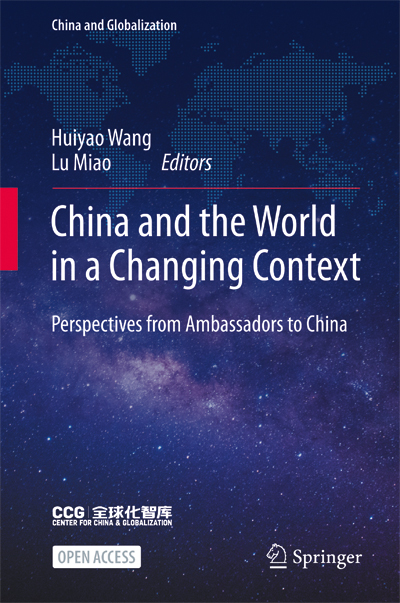
China and the World in a Changing ContextPerspectives from Ambassadors to China
Editors: Huiyao Wang, Lu Miao
Published in March, 2022
ISBN: 978-981-16-8085-4
Publisher: Springer Nature Publishing Group
Download Book at Springer
https://link.springer.com/book/10.1007/978-981-16-8086-1
CCG’s new book China and the World in a Changing Context: Perspectives from Ambassadors to China has been released online. This open access book presents China and a changing globalized world from the perspective of 23 ambassadors to China, covers key development topics including economic growth, foreign policy, and SDG-related themes.
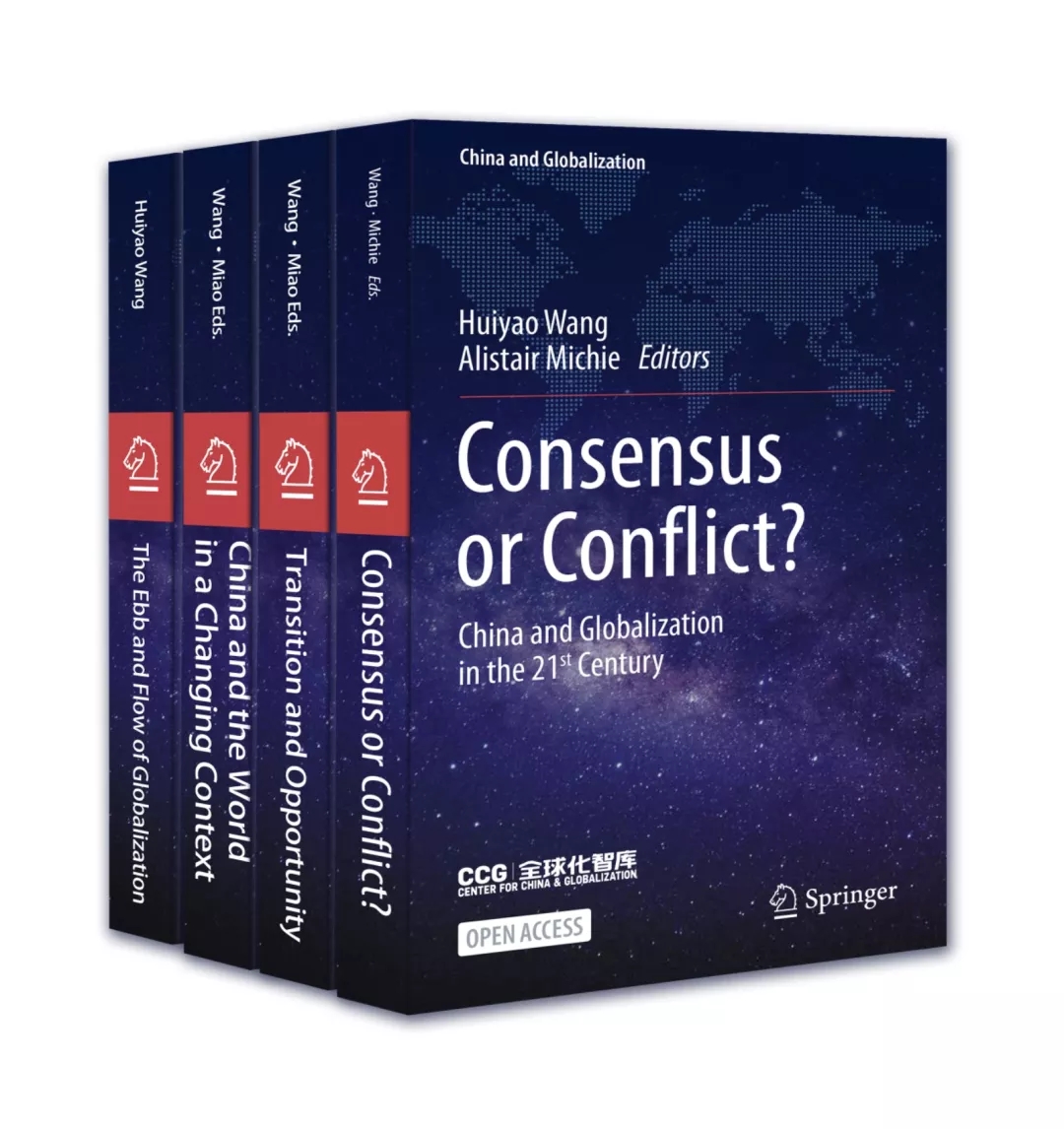
Series Editors: Huiyao Wang Lu Miao
Publisher: Springer Nature Publishing Group
Topical News See more


